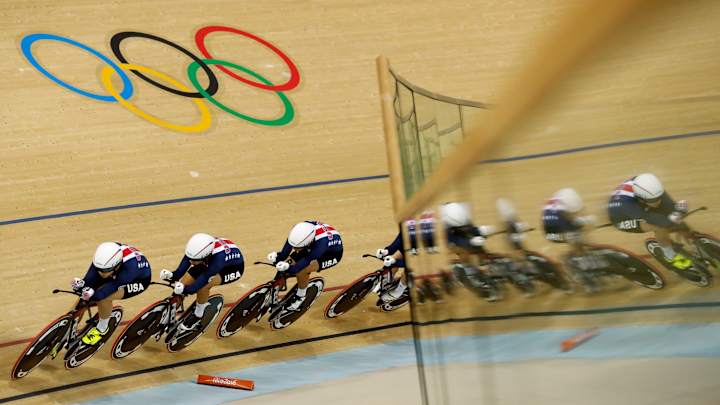UCI president defends brutal nature of Olympic road course

RIO DE JANEIRO (AP) The president of cycling's world governing body defended the Olympic road course on Saturday, calling it a fair test and suggesting those who crashed pushed past their limits.
Brian Cookson addressed a number of other issues during a wide-ranging news conference at the Rio de Janeiro Games at the midway point of the cycling program, including doping, the schedule of the track cycling program and several road racing issues.
But perhaps the biggest hot-button issue through a week of competition was a road course that some had labeled too dangerous. One particularly nasty descent caused riders such as Italian star Vincenzo Nibali to go down and left Dutch rider Annemiek van Vleuten in the hospital.
''We've had discussions about the number of crashes and the circumstances. It is my belief and our belief at the UCI that the courses were in the bounds of what was reasonable,'' Cookson said.
Van Vleuten spent several days in the hospital with a concussion and three small fractures to her spine. She flew home to the Netherlands on Friday to continue her recovery.
''It's the rider's responsibility to make the right decisions,'' Cookson said. ''I went to speak with Annemiek in the hospital and talked to her, and in her case, it was an error of judgment there (going too fast on the descent).''
Cookson was also asked about the silver medal won by Olga Zabelinskaya in the time trial. It came just days after the Court of Arbitration for Sport ruled a ban on Russian athletes who had been barred from competing for prior doping offenses was unenforceable, allowing Zabelinskaya to compete.
''The Russian cyclist who finished second in the time trial was entitled to be here under the rules of the (World Anti-Doping Agency) and the IOC,'' Cookson said. ''I'm guessing she will not be the only previously convicted doped athlete at the games.''
Cookson has been working to clean up the sport after years of doping, including Lance Armstrong's admission of guilt a few years ago. And he said the positive test of a Brazilian cyclist in an out-of-competition test the week before the road race was a sign of progress.
''I've said this many times before, cycling has been leading for many years in the fight against doping in sport,'' Cookson said. ''Whether there is a small number of athletes trying to cheat, I hope not, but if they are, we will catch them and we will sanction them.''
In other issues:
- Cookson said the UCI is still examining the blood bags from Operation Puerto, the Spanish police investigation into a doping ring led by Dr. Eufemiano Fuentes. Cookson otherwise declined to comment on the ongoing investigation, saying only that ''when we have something to report, we will.''
- The UCI is confident WorldTour teams will compete in the team time trial at the world championships in Qatar. Several teams announced plans to boycott the event, in part because they are required to compete at their own expense.
- Cookson said he was open to smaller teams in major events such as the Tour de France, but he warned that ''I think some of the bigger teams would object to that, and there are pros and cons to the details of that. It's something I wouldn't rule out but let's move forward gradually.''
- The UCI hopes to expand the cycling program at future Olympics, though Cookson did not say whether it would be merely an expansion of the track program or the addition of another discipline, such as downhill mountain biking or freestyle BMX competition.
